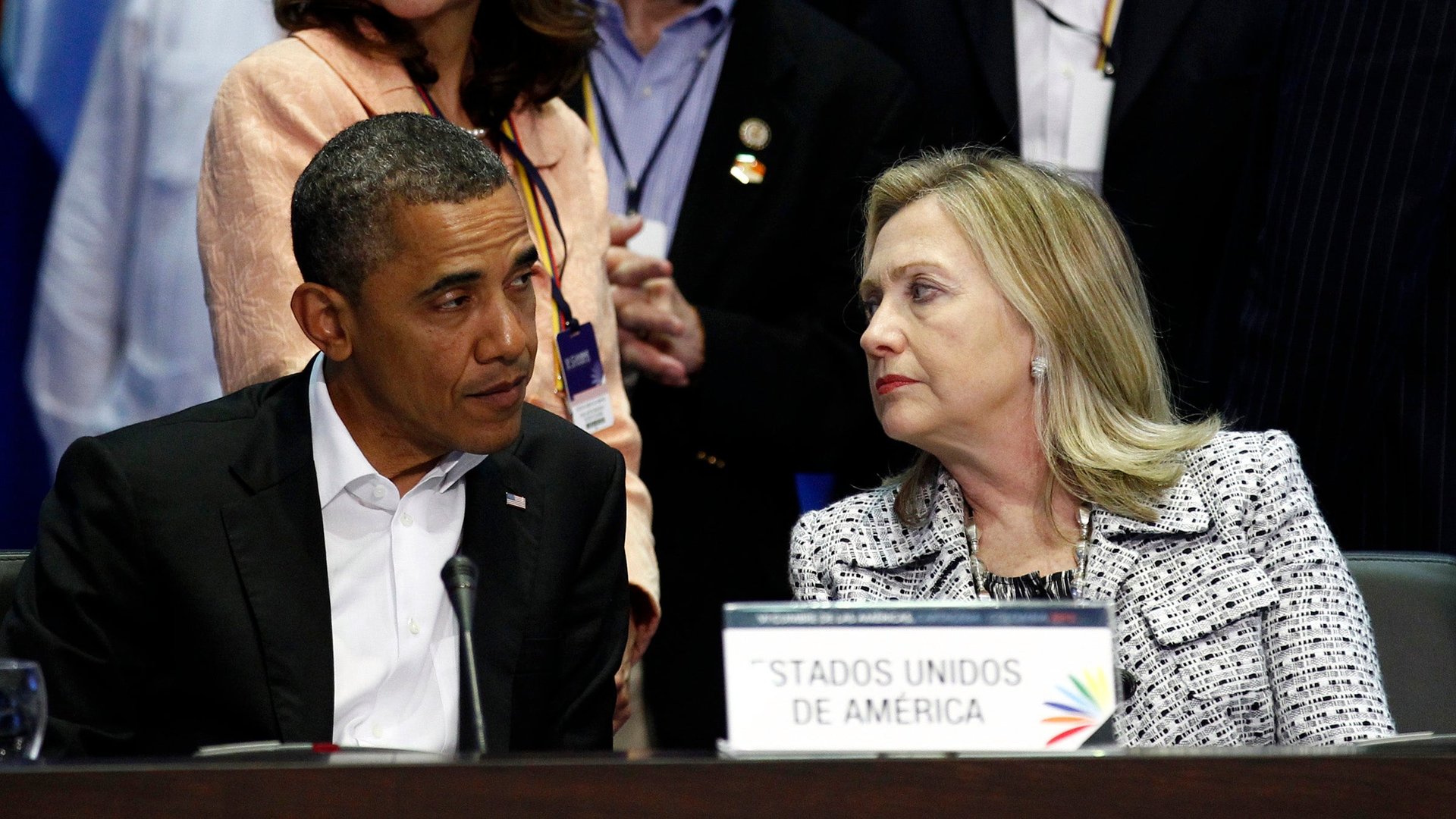Does Hillary Clinton have a better plan for the global economy than Barack Obama does?
Hillary Clinton laid down an important marker yesterday in her campaign for the presidency, endorsing a path to citizenship for unauthorized immigrants as part of comprehensive immigration reform.


Hillary Clinton laid down an important marker yesterday in her campaign for the presidency, endorsing a path to citizenship for unauthorized immigrants as part of comprehensive immigration reform.
Clinton’s vow to carry on the current White House administration’s support for immigration reform, and its policy of deferring deportation for children brought to the US by their parents without legal authorization, puts her squarely in the mainstream of the Democratic party. Clinton also draws a strong contrast with her Republican opponents. As she noted in a May 5 campaign stop in Nevada, “Today, not a single Republican candidate, announced or potential, is clearly and consistently supporting a path to citizenship. Not one.”
That’s a very obvious signal not only to the America’s increasingly important bloc of Hispanic voters, but also to the business community—and especially Silicon Valley, which wants access to skilled foreign workers and has made common cause with immigration activists (who typically are focused on lower-skilled migrants) to push for policy changes concerning both populations.
But more than anything else, fixing the US immigration system would be a response to the pressure that globalization is putting on US wages. Research by economists tends to suggest that bringing more immigrants to the US would modestly raise US wages in the long term, while relieving demographic pressure on US government spending. (Without immigrants, the US will be relying on fewer workers to support more pensioners in the years ahead.) One recent working paper from the National Bureau of Economic Research found that even low-income immigrants help to create jobs for American workers—an effect you might even have seen at your nail salon.
Right now, immigration reform is dead in Washington because Republicans in Congress are too divided on the issue, hence the Republican presidential candidates’ lack of interest in supporting it.
In the meantime, president Barck Obama’s administration is focused on another measure to improve the US economy that many Republicans do support: the Trans-Pacific Partnership (TPP), a free-trade deal with 11 other nations.
While the deal would provide a boost to the sectors where the US has the biggest advantage, and ensconce American trade rules, skeptics are concerned that the pact will put pressure on US wages and leave the global poor vulnerable—the latter fear tied mainly to a measure in the agreement that would strengthen patent protections for pharmaceutical companies. That’s one reason that Clinton has left herself plenty of room to oppose or re-negotiate the deal.
Both of these policy pushes, on immigration reform and the TPP, are designed to deal with a world where capital, goods, and human beings themselves are far more mobile than they’ve ever been. But, while many of the TPP’s economic benefits accrue to big corporations and the wealthy absent a more effective safety net, immigration reform’s positive economic effects will be shared more broadly in the US.
Neither, however, will be an easy political lift. Obama knows this all too well; don’t forget, in 2008 he was promising immigration reform and talking tough on re-negotiating trade deals. Now, facing a Republican Congress, he has to take what he can get—while Clinton, on the campaign trail, can talk freely about what she wants.